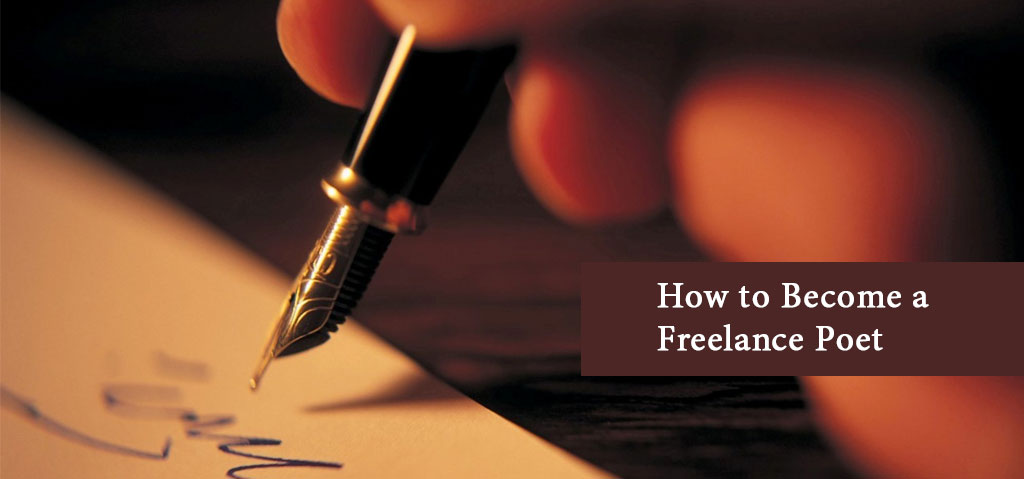
Poetry is a powerful mode of expression and has since ages continued to mark its special place in the world. Poets came and went, but their legacy remained and continued inspiring others to immerse themselves in this fascinating world of reflection and self-exploration.
Poetry is such an incredible universe that only few can do justice to it, and the rest die down in oblivion. While many write poems when going through phases, few are able to perfectly convey their emotions to the world and earn a profit from the same too. Nevertheless, to find a place among profitable poets, if I can use that phrase, you need to do some homework.
If you wish to become a poet, you may consider freelancing. Freelancing is relatively convenient and provides greater opportunities to develop. The freelancing community is vast, and this is particularly true for the freelancing poetry community. Since poetry is a nearly universal hobby, there are many who try to make a career out of it and thus, the global presence of the community.
It is not that difficult to become a freelance poet, but you need to keep in mind certain fundamentals before actually starting. In this article, we shall explore those four fundamentals in detail.
1. Freelance Poet Job Duties
Poetry does not necessarily need formal education per se; however, the contemporary trend is definitely tilting in favor of those poets with some sort of formal training through poetry forum. While it is not easy to find courses particularly on poetry learning, there are plenty of courses offered in creative writing. To know more about the same, read the following carefully:
- Experience is fundamental in freelancing, and to gather some of it, you need frequent engagement in poetry.
- There are a number of reputed institutes in the country that offer considerable courses in creative writing with the help of which you can improve and shape the poetry skills. Such courses will give you insights into the world of famous and worshiped literature from across the globe, and help you familiarize with different aspects of creative writing such as mood, tone, etc.
- Examples of some of such institutes include Jawaharlal Nehru University, Delhi that provides creative writing as an optional subject in the MA (English) curriculum; the British Council, which can be found in nearly all metropolitan areas; Calcutta University has a diploma course; Indira Gandhi National Open University, which offers a postgraduate diploma course through its distance learning program; The Karnataka State Open University offers a number of Diploma courses through its distance learning program.
- If you wish to learn at international schools, then you may join the University of Oxford, the University of Sydney, the University of East Anglia, etc. These courses will be relatively expensive but will provide you with access to world-class educational service.
- If getting a formal education is not an option, then you can work on your skills through regular writing, publications, and whatnot. It is advisable to read all genres of poems since this exercise will give you more and better ideas on themes, styles, tones, mood and other ingredients essential to the making of a beautiful and honest poem
2. Skills Necessary To Become A Poet
It is not that simple and easy to become a poet. Many of us are under an erroneous belief that a couple of graceful, powerful rhyming words composed together in a pattern make, what people call, a poem. A true poet is one who possesses certain skills and utilizes them in his creation. Under this head, we shall explore those fundamental skills every poet must possess:
- Inspiration: Inspiration drives a poet, and without it, a poet will not be able to give his best. Inspiration allows a surge of emotions to enrapture one’s heart and make one’s mind think deeply. A dead poem is something which lacks inspiration—or to say it bluntly, feelings.
There are moments in life which affect the most, and it is during such moments, we are inspired to express to our heart’s content. If you have such moments, you should seek motivation from them. Whether they are dark or light-hearted moments, you should be able to give them expression through words.
- Thematic approach: Many just write down a poem, without putting in thoughts. A talented poet is one who upon being inspired crafts a theme and ponders upon the same. He builds a roadmap before actually starting.
- Knowledge of literature: You need not be a master of literature to write poems, but you should have a fair idea about some of the notable literature in the world, especially classic literature. Classic writers such as William Wordsworth and Rabindranath Tagore used distinctive styles which made them internationally renowned, and therefore, you should study them well. The more you read, the more you grow as a poet.
- Command on language: Whether you write in Urdu, English or any other language, you should hold a strong command on that language. Such command does not develop in a day or two but through rigorous practice. Read literature, articles and other documents in that language thoroughly. This way you will never fall short of words, styles, and emotions!
- Avoiding complexities: Poetry is a mouthpiece of emotions, and the more you complicate it, the more difficult it becomes for people to understand. When you are freelancing, you are writing poems not only for yourself but also a number of readers who may not be as brilliantly acquainted with the language used as you are.
- Ability to explore different themes: Sometimes, you may come across a client who requires a poem on a theme upon which you have little or no experience, then you must give in to lack of knowledge. A true poet never fails at poetry, and this happens because he puts his heart on whatever he writes. Study the theme rigorously and heartedly, send samples to the client, welcome changes if recommended by the client, and accordingly, tune your skills.
You will create a name for yourself if you master this skill.
3. Freelance Poet Career:
The freelance community is humungous; the work opportunities, even more. As a freelance poet, you can find work at an umpteen number of places, and some of them have been mentioned below:
- You can work as a freelance poet to magazines, newspapers, journals, etc
- A number of TV channels run poetry programs, especially regional TV channels. These provide profitable working opportunities to freelance poets.
- There are a number of online platforms where poetry is regularly published such as Terribly Tiny Tales, booksie.com, etc and they often seek assistance from freelance poets.
- To know more about the available working opportunities, you can join famous platforms such as freelance.com, worknhire.com, upwork.com. These websites have been designed to provide quicker and more authentic access to work opportunities.
To get the best of these websites, create an informative account on any one or all of these websites, update a well-drafted portfolio of relevant skills, promote yourself as a credible and talented freelance poet and submit applications. Make sure you follow up, and whenever you do so, write a proposal stating why you are best for the job and how much you will charge. This is a standard way of freelancing online and is currently the most convenient way too!
4. Freelance Poet Pay Scale
The question of pay scale cannot be readily answered and needs a lot of examination. In America, professional poets sometimes earn as much as $50k, but a lot of it is dependent on a number of factors. These factors include skills, years of experience, the number of publications, educational qualifications, etc. If you are an experienced freelance poet, you can charge as much as Rs. 1000 per poem or whatever. However, those fresh in the field will have a relatively tough road to tread in the beginning.




